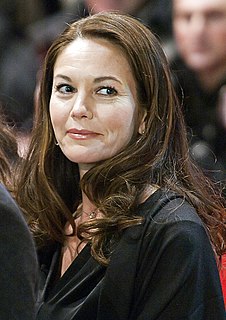A Quote by Judith Butler
Some trans people thought that in claiming that gender is performative that I was saying that it is all a fiction, and that a person's felt sense of gender was therefore "unreal." That was never my intention. I sought to expand our sense of what gender realities could be. But I think I needed to pay more attention to what people feel, how the primary experience of the body is registered, and the quite urgent and legitimate demand to have those aspects of sex recognized and supported.
Quote Topics
Related Quotes
Someone who is experiencing gender dysphoria would be someone who feels that his biological sex doesn't match up with the gender that he feels. So, I might feel like I am a woman trapped in a male body, and you can imagine how horrible that would be to have that kind of experience or to think that you're a man trapped in a woman's body. It must be just a terribly difficult experience for those who experience gender dysphoria. But this is not anything to do with homosexual attraction or activity. It's a matter of one's self-perceived identity.
Gender is not something that one is, it is something one does, an act... a "doing" rather than a "being". There is no gender identity behind the expressions of gender; that identity is performatively constituted by the very "expressions" that are said to be its results. If the immutable character of sex is contested, perhaps this construct called 'sex' is as culturally constructed as gender; indeed, perhaps it was always already gender, with the consequence that the distinction between sex and gender turns out to be no distinction at all.
I've always thought about gender, as someone who has been categorically "gender nonconforming" for my entire life, I was forced to think about it, but obviously I became more conscious of it as a social issue as I've gotten older. And as I've met more folks who are genderqueer or trans, it's been really enlightening to hear their stories, and it got me thinking about my own gender history.
I think a lot of the time, the studio system is so compelled to kowtow to its fear that women are not going to be found sympathetic. It just sort of euthanizes any hope of more diverse examples of the emotional realities of people. Representing my gender, I think, "Well, I have those emotions, why don't those ever get brought to the screen so I can feel recognized?"
I think growing up, the assimilation of most cultural conventions typically encouraged by a heightened awareness of gender and sex encourages a sort of separation of the self. What's so special about 'Hanna' is that her upbringing has negated this indoctrination; she's almost absolved of the pressures of gender or gender itself.
I met people on college campuses who were defining themselves as genderqueer to express revolutionary feelings, or to communicate their individuality; they were gender fluid without being gender dysphoric. This phenomenon may be culturally significant, but it has only a little bit in common with the people who feel they can have no authentic self in their birth gender.




































